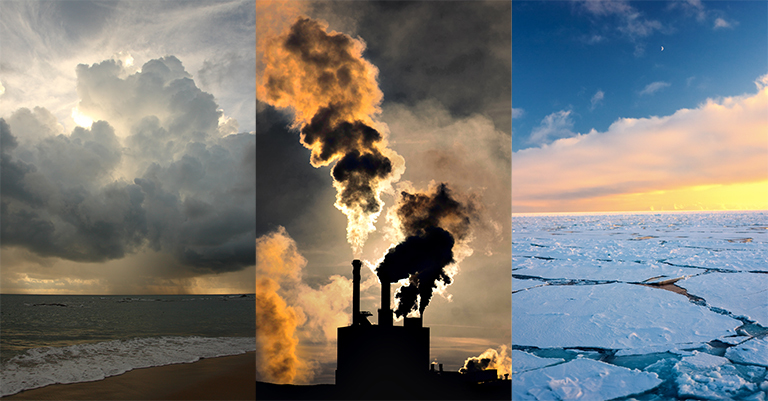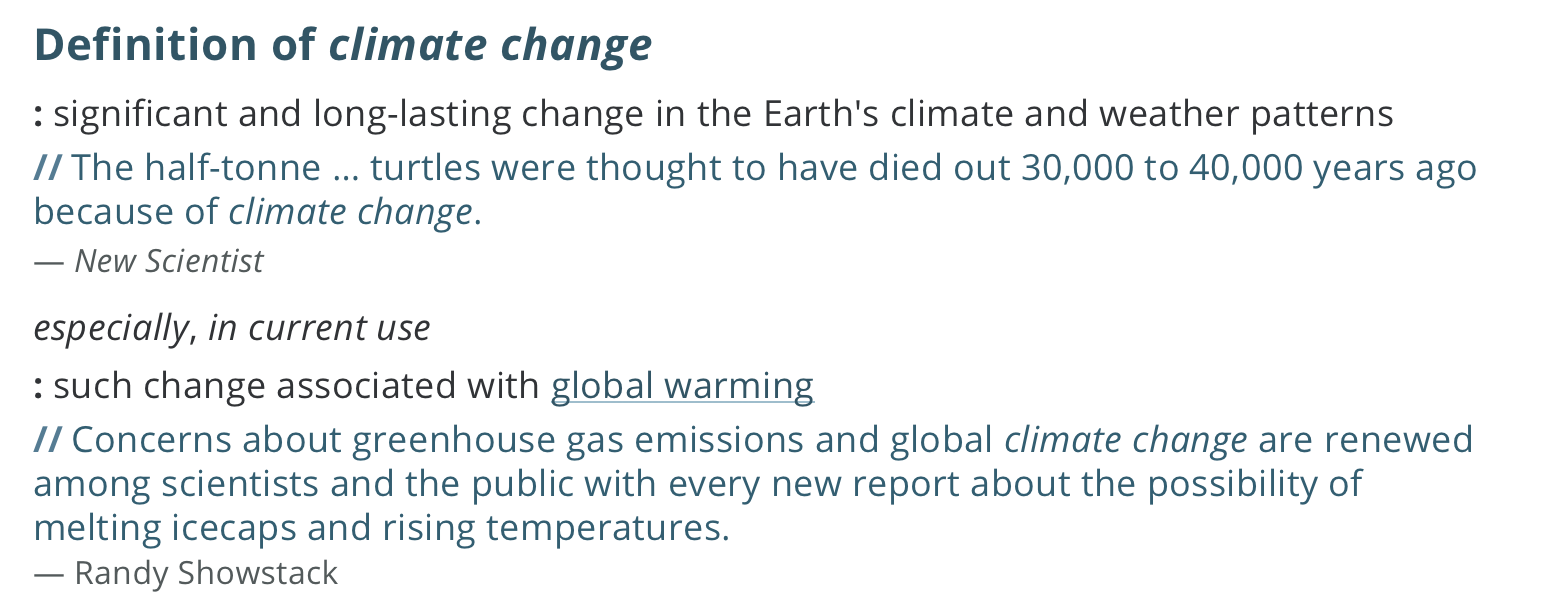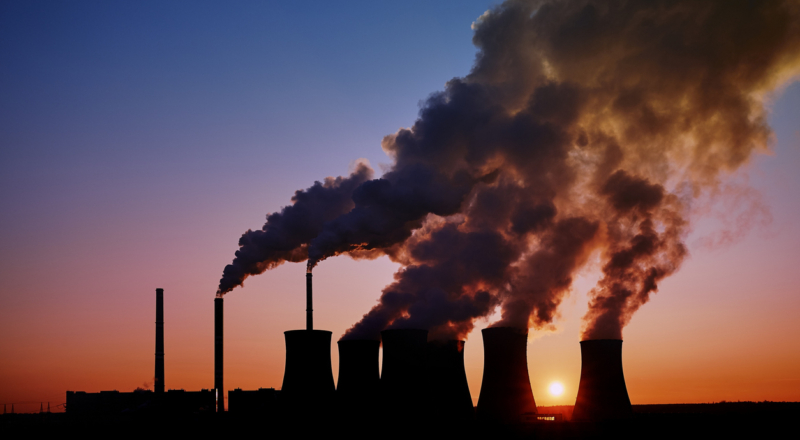We’ve been hearing a lot about climate change recently. It’s in the news, on billboards and on social media; but what is climate change and what is causing it? Let’s start with the dictionary definition of climate change and then we can talk about it in layman terms.

What is Climate Change by Definition

The First Part of the Definition
There are 2 parts to this definition. The first part refers to Earth’s climate and weather patterns. A weather pattern is a series of weather events that repeat. There are many types of weather patterns. An example of a weather pattern would be the changing of seasons that happens around the same every year. Now, what if the seasons started to shift?
For instance, what if summer weather in the U.S., which usually starts around June, started earlier next year and then even earlier the year after that? If that pattern continued for 10 more years, we would eventually be wearing bikinis in January. That might sound like a fine idea right now, but on whole, it would constitute a “significant and long-lasting change” in Earth’s weather patterns – as defined above. This is exactly what scientists are starting to see happen now, but to a lesser degree. Still, even the slightest shift of seasons can have enormous effects on life as we know it. As this trend continues, you may want to consider alternative ways to keep track of your local weather instead of just relying on the news. Let’s move on to the second part of the definition now.
The Second Part of the Definition
The second part of Merriam-Webster’s definition says that the term climate change is often used in association with the term global warming. We therefore need to ask what is global warming. Merriam-Webster provides the definition here:

In other words, global warming is the rising of temperatures on Earth due to pollution gasses trapping the heat from the sun inside our atmosphere. Climate change, therefore, is the result of global warming. As temperatures around the world increase, not only do weather patterns change, but the ice masses in Earth’s polar regions melt too. This, in effect, causes sea levels to rise, which is why people that live in or around coastal areas are more and more at risk of having to move inland in order to escape the water. Global warming can also affect daily temperature fluctuations, so staying informed about changing temperatures is becoming more important these days.
What are the Causes of Climate Change
So, now that we have answered the question what is climate change, let’s talk about what are the causes of climate change. Scientific evidence suggests that human activity has been the main cause of climate change over the past several decades. We can trace its beginnings all the way back to the Industrial Revolution, when human’s started releasing large amounts of pollution into the air. The development of factories, air planes and cars were the main culprits. Pollution contains many harmful substances, but the one involved with climate change is carbon dioxide (CO2).
Carbon Dioxide

This gas is harmless in small amounts. In fact, carbon dioxide occurs naturally in the air we breathe every day. However, when the concentration of CO2 in the air gets too high, it can be harmful for our bodies and the environment. CO2 traps heat inside of Earth’s atmosphere, which is known has the greenhouse effect. That is why global warming happens, which then causes climate change.
Methane

Another dangerous greenhouse gas that humans have been emitting into the atmosphere is methane, or CH4. This gas has a long history with us humans. It is produced by our digestive tracts and responsible for perhaps billions of rude moments throughout human history, but that is not the cause of climate change. There is another animal that literally blows us humans away when it comes to CH4 – the humble cow.
Cows today produce more CH4 than all humans combined; yet, still, we are the cause of this catastrophic flatulence because we are breeding them for food. In effect, we have created an unnatural population of cows that would never have existed otherwise. Not only has the additional biomass put stress on Earth’s ecosystems, it has dangerously increased the amount of CH4 being released into our air. Moreover, CH4 is much more potent than CO2 when it comes to trapping heat inside our atmosphere.
Staying Safe
As weather patterns start to change more dramatically, you may notice more unexpected, severe weather events happening around you. It is important that stay on alert and dress appropriately in order to endure such weather events and be safe.
Final Thoughts
The next time somebody asks you what is climate change, you now know how to answer them in plain English. By knowing what climate change is and what is causing it, you may also be able participate in helping to preventing it. There are many ways you can reduce the negative effects of climate change. For more information, you can refer to the scientific research reports about climate change.